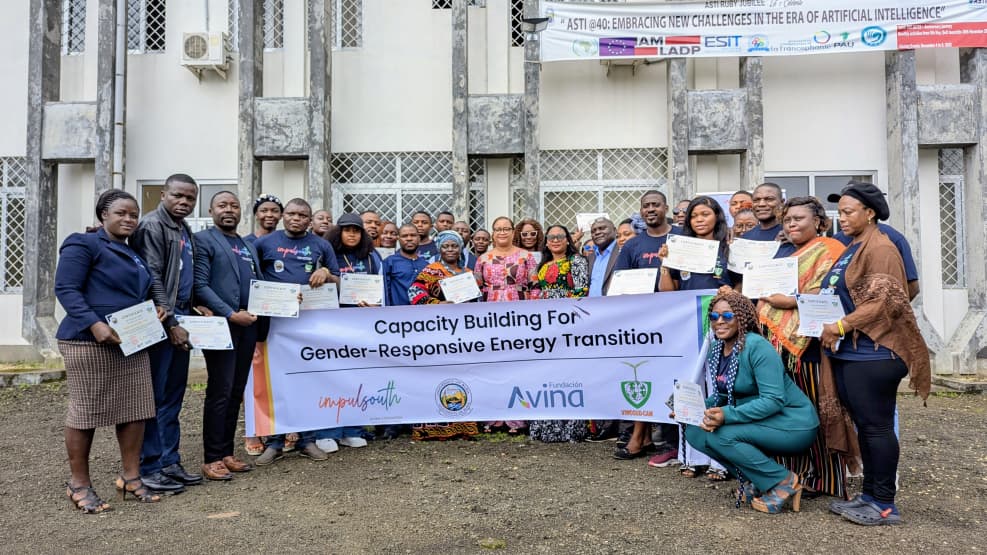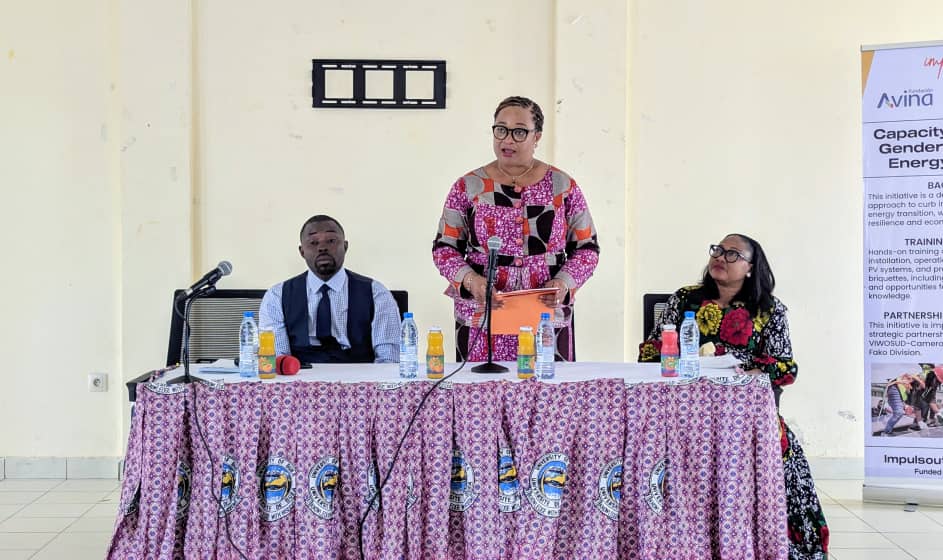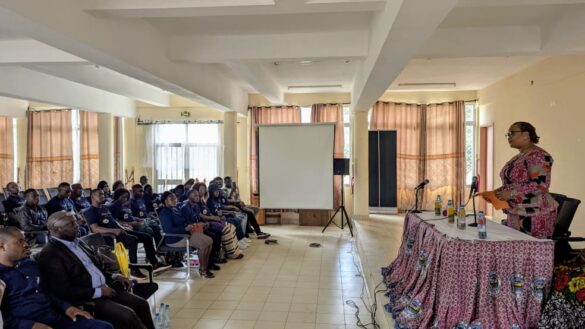In a response to the protracted energy crisis crippling the Southwest Region, like most parts of Cameroon, the University of Buea (UB), alongside its partners, has equipped over 30 community leaders with practical skills in renewable energy, placing women at the forefront of this transformative shift.
The intensive capacity-building workshop, titled “Capacity Building for a Gender-Responsive Energy Transition,” which ran from August 27 to September 6, 2025, represents a critical intervention. It targeted representatives from municipal councils and civil society organisations across Fako Division, including Buea, Tiko, Muyuka, and Limbe.
The initiative, sponsored by the Latin American sustainable development organisation Fundación Avina and implemented in partnership with the grassroots organisation Village Women Organisation for Sustainable Development (VIWOSUD-CAM), aimed to move beyond theory and provide hands-on solutions to chronic power blackouts.
At the closing ceremony, the Registrar of the University of Buea, Professor Eneke Bechem, underscored the university’s commitment to community outreach. “If you look at the mission of the University of Buea, it is threefold: teaching, research, and outreach. This kind of initiative falls squarely within our mission of outreach,” Prof. Bechem stated. He highlighted that the university has a history of such practical interventions, from training communities in fish farming to conducting health campaigns.

Addressing a Deepening Crisis
The training’s urgency is rooted in a severe energy deficit. Participants painted a grim picture of communities plunged into darkness for months due to a failing national hydroelectric grid and infrastructure damage from the ongoing socio-political crisis.
Enow Nadia, a municipal counsellor in Tiko Council and President/Founder of the Mother Earth Foundation Cameroon, attested to this reality. “Some areas in Tiko have been without light for three to six months,” she revealed. For women, the burden is even heavier. Agbor epse Tabot Rita Takem, Executive Director of Local Actions for Equality and Peace Building, explained, “Power outages disproportionately affect women… We are forced to shop and cook on a daily basis. We all know that money is not always readily available.”
Empowering Trainers to Become Community Beacons
The project’s core strategy was to train a cadre of trainers who would carry the knowledge back to their communities. As Dr. Engineer Basile Winkar Nsanyuy, the project coordinator, explained at the launch, the goal was to ensure “ownership of the knowledge for these communities,” particularly rural areas most affected by energy deficiency.
Participants received hands-on skills in two key areas: the design, installation, and maintenance of solar photovoltaic (PV) systems, and the production and commercialisation of eco-friendly charcoal briquettes made from materials like coconut shells.
Nji Lucas, who runs the civil society organisation, REREHABET, found immense value in both skills. “The briquette fabrication… is a relatively inexpensive alternative compared to conventional fuels,” he said. “Another very important thing I learned here is the mounting of the PV system… This will be a great help, especially for those living in very precarious areas where infrastructure has been destroyed.”

A Deliberate Focus on Women’s Inclusion
Anchoring the project on a gender-responsive framework was a deliberate choice. Mariana Tande of VIWOSUD-CAM, who is also the project’s Co-lead, stated that her organisation teamed up with UB precisely because women are at the centre of unclean energy use in households and bear the brunt of the energy crisis.
This focus ensured women were not just beneficiaries but active agents of change. Agbor Rita Takem highlighted the breaking of gender barriers: “Installation of solar panels has been male-dominated. Now, we will have a group of women who can disseminate this information and involve other women and girls in the process.”
From Training to Sustainable Impact
The true measure of the workshop’s success will be its replication in communities. The participants are already planning their next steps. Enow Nadia pledged to organise training workshops for youths in Tiko on how to manipulate solar energy systems. “The knowledge I gained will not end with me; I will impart it to others, and they will carry it to the grassroots level,” she said.
Mariana Tande envisions a future where communities are less dependent on external aid. “This will allow people to be less dependent on emergency assistance… but they themselves will create their own jobs. So it’s a wealth creation opportunity,” she said, expressing hope for continued funding to light up communities.
For the University of Buea, this project is a testament to its role as a catalyst for sustainable development. As Deputy Vice-Chancellor Prof. Michael Ekonde Sone noted at the launch, the initiative is “timely” and “holistic.” By empowering local champions with practical, gender-sensitive solutions, UB and its partners have not just taught a skill—they have ignited a beacon of hope and self-reliance, one solar panel and one clean cookstove at a time.
By Andrew Nsoseka

